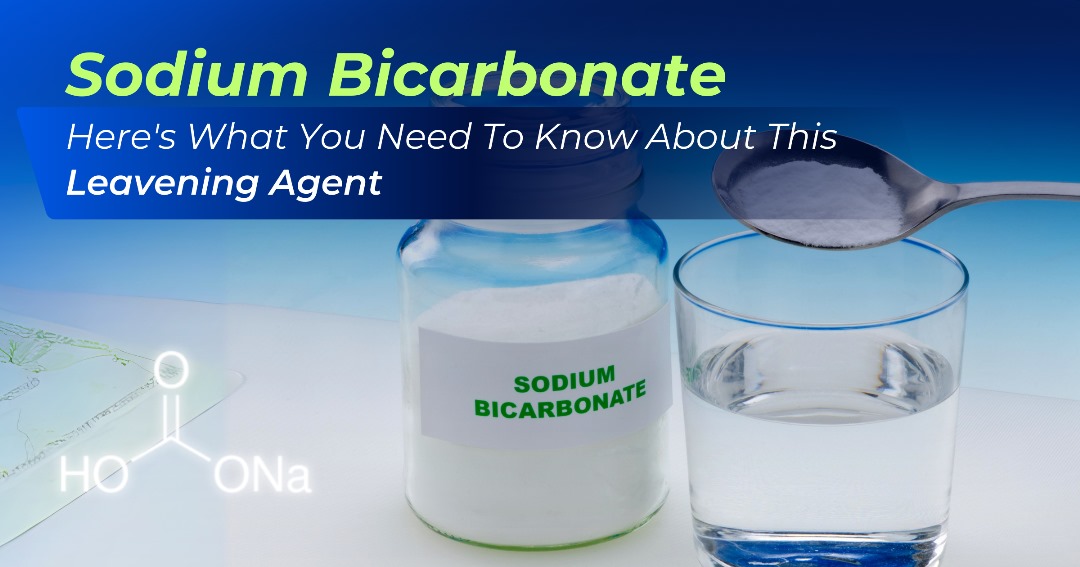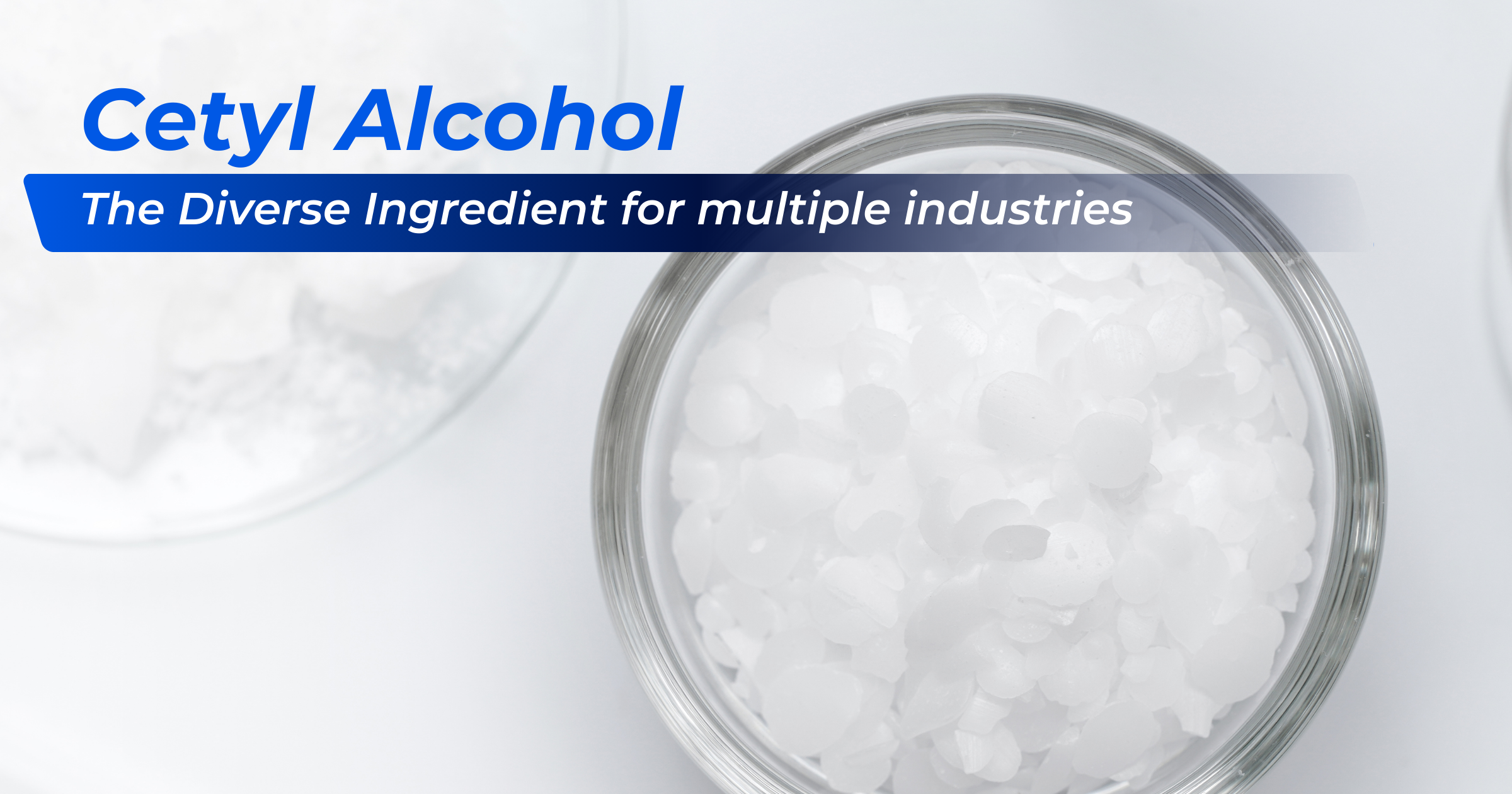Welcome to your guide on Sorbitol Powder, one of Nigeria’s rising stars in the industrial landscape. If you’re in the food, pharma, or tobacco industries, you may have heard about this versatile ingredient—but what’s the real story?
Let’s start with the basics. Sorbitol is a sugar alcohol found naturally in fruits and plants, sweet but not overly so and far more versatile. Unlike other sugar alcohols, Sorbitol has a pleasant taste and is less likely to cause digestive issues.
Scientifically speaking, Sorbitol is a hexitol, a type of polyol derived from glucose. In simpler terms, it’s less sweet, and less calorie-packed in contrast to regular sugar. Also, it is not easily fermented by oral bacteria, which means it is a healthier option and doesn’t contribute to tooth decay.
In this guide, we’ll dive deep into Sorbitol Powder’s journey, its role in Nigeria’s booming industries, and the opportunities that await. Don’t miss out on this market!
The Journey from Sorbitol-to-Sorbitol Powder
Liquid Sorbitol, while useful, has its limitations—think storage issues, shorter shelf life, and higher shipping costs. On the other hand, Sorbitol Powder solves these problems, making it a go-to for various industries. Below is a step-by-step breakdown of the process of turning sorbitol into sorbitol powder.
The journey from liquid to powder starts with purification. The liquid Sorbitol is filtered to remove impurities, ensuring a higher powder quality.
Secondly, the purified Sorbitol is concentrated through evaporation, heating the liquid to eliminate excess water. This results to a more concentrated form for crystallization.
The concentrated Sorbitol is cooled down rapidly to form tiny, solid crystals. This delicate process occurs in controlled environments to ensure uniform crystal size.
Once crystallized, the Sorbitol crystals are separated from any remaining liquid through centrifugation. The separated crystals are dried to remove any moisture and ground into a fine powder. This is crucial as it determines the particle size, affecting the powder behavior in different applications.
Finally, the Sorbitol Powder undergoes rigorous quality checks to meet industry standards, focusing on purity, particle size, and moisture content.
One thing to note: not all Sorbitol Powders are created equal. The quality depends on the original Sorbitol’s purity and the manufacturing process. So, if you’re sourcing Sorbitol Powder, ensure you get the good stuff.
Sourcing Sorbitol Powder
Firstly, we’ve got a mix of local production and imports mainly from countries like China, India, and Germany. So, whether you’re Team Local or Team Import, there’s something for everyone.
However, local sourcing offers faster shipping and inspection opportunities but may have limited capacities. Consequently, while sourcing, consider supplier certifications, customer reviews, facility standards, and request samples to ensure product quality.
Now, if you’re looking beyond our borders, you’re entering the import game. Importing allows you access to a broader range of quality and price points, but it comes with challenges, from import duties, longer lead times, to risk of receiving subpar products.
Furthermore, importing Sorbitol Powder means dealing with customs. This requires knowledge of the Harmonized System (HS) codes for Sorbitol Powder, the import duties, and any restrictions or quotas.
Lastly, not everyone has the time or expertise to deal with importing. That’s where distributors come in. They handle everything from customs clearance to delivery, simplifying your sourcing process. Matta is an excellent example of this, and we simplify the process in more ways than one.
Quality and Specifications
Whether you use Sorbitol Powder in food products, pharmaceuticals, or industrial applications, the quality directly impacts the end product. Poor quality can lead to health risks, regulatory issues, and a damaged reputation. So, it’s not something to take lightly.
Imagine you’re a manufacturer of sugar-free confectionery. You opt for a lower-quality Sorbitol Powder to cut costs. The result? Your candies have an off taste; worse, some customers report digestive issues. You face potential legal action, and your brand reputation takes a massive hit. Quality isn’t just a buzzword; it’s a business imperative.
Key Quality Indicators
When it comes to Sorbitol Powder, there are several key quality indicators to look out for:
Purity
This refers to the absence of contaminants like heavy metals, bacteria, and other impurities. A high purity ensures the Sorbitol Powder meets safety standards and performs consistently across applications. Always ask for a Certificate of Analysis (CoA) to verify this.
Particle Size
Particle size doesn’t just affect solubility; it also impacts texture, mouthfeel, and even the stability of the end product. For example, a finer particle size in cosmetics may result in a smoother, more luxurious feel, while in industrial applications, a coarser size might be more suitable.
Moisture Content
Moisture content is often overlooked, but it can be a silent saboteur. Excessive moisture can lead to microbial growth spoilage and even alter the chemical properties of Sorbitol Powder. This is why some suppliers offer “low moisture” or “anhydrous” versions, especially for sensitive pharmaceutical applications.
pH Level
The pH level of Sorbitol Powder can affect its compatibility with other ingredients. For instance, a more acidic pH might be desirable in food preservation, while a neutral pH may be needed in pharmaceuticals to ensure bioavailability.
The pH level is worth checking, especially for food and pharmaceutical applications.
Regulatory Compliance
NAFDAC isn’t the only regulatory body you must worry about in Nigeria. If you’re in the food industry, consider the Standards Organisation of Nigeria (SON). And if you’re exporting, you’ll need to meet the regulations of the destination country, which could range from the FDA in the U.S. to the EFSA in the EU.
Quality Control Tests
While solubility and HPLC are standard, other tests like Fourier-Transform Infrared Spectroscopy (FTIR) for compound identification and Differential Scanning Calorimetry (DSC) for thermal properties can provide a more comprehensive quality profile.
Third-Party Labs: Your Quality Assurance Partners
Third-party labs can offer more than just testing services. They can also provide consultation on quality benchmarks, helping you set specifications that align with your application needs.
Applications of Sorbitol Powder
Food & Beverage
Sorbitol Powder is more than just a sugar substitute in Nigeria’s food industry; it’s a versatile ingredient with multiple applications in:
- Bakery: It keeps bread and pastries moist for longer, reducing waste and enhancing taste.
- Confectionery: Sugar-free candies and gums use Sorbitol to provide sweetness without the calories, making them popular among health-conscious consumers.
- Beverages: It stabilizes fruit juices and drinks, preventing separation and extending shelf life.
Pharmaceuticals
In Nigeria’s growing pharmaceutical sector, Sorbitol Powder serves as a multitasking ingredient.
- Tablets: It acts as a filler and binder, improving stability and shape.
- Syrups: It serves as a sweetener, enhancing texture and mouthfeel in liquid medications.
- Topical Gels: It helps retain moisture in gels, improving consistency and application.
Cosmetics & Personal Care
Sorbitol Powder plays a key role in beauty and personal care products.
- Skincare: It functions as a humectant, helping lotions and creams retain moisture.
- Oral Care: In toothpaste, it acts as a thickener and sweetener without promoting tooth decay.
- Hair Care: It helps maintain moisture balance in shampoos and conditioners, making hair softer and more manageable.
Industrial Uses
Although less glamorous, Sorbitol Powder’s industrial applications are crucial.
- Leather Tanning: It ensures even distribution of tanning agents, enhancing leather quality.
- Paints & Coatings: It acts as a humectant and stabilizer, improving shelf life and application.
- Plastics: As a plasticizer, it increases flexibility and durability.
Tobacco
Sorbitol Powder is increasingly used in Nigeria’s tobacco market, particularly in smokeless products like snus. It acts as a humectant, keeping tobacco moist and enhancing its flavor. Despite the health concerns associated with this application, it’s an emerging trend in Nigeria’s tobacco market.
Regulatory Landscape and Compliance
Navigating regulations can be a maze, but don’t worry; we’ve got you covered. In Nigeria, agencies like NAFDAC closely monitor Sorbitol Powder, especially when used in food and drugs. So, always ensure your Sorbitol Powder is up to code.
NAFDAC sets the regulatory framework for Sorbitol Powder in Nigeria.
Before selling Sorbitol, you must secure NAFDAC’s approval, involving lab tests, documentation reviews, and surprise inspections. Likewise, NAFDAC conducts random checks, testing samples from retail outlets and inspecting facilities unannounced to ensure compliance.
Furthermore, labeling guidelines are strict, dictating font sizes, safety warnings, and approved marketing language.
SON
SON is equally crucial in maintaining quality standards through regular testing and certification.
SONCAP Certifications must be renewed periodically, requiring fresh testing and inspections. Additionally, imported Sorbitol faces stricter regulations and certifications to meet SON’s standards.
Industry-Specific Regulations
The Cosmetic Product Prohibition Act regulates permissible Sorbitol levels in cosmetic formulations. Similarly, the Pharmacists Council of Nigeria mandates rigorous stability testing for Sorbitol used in medications.
The Cost of Non-Compliance
Non-compliance has severe consequences, including fines and long-term reputational damage.
Audits may be triggered by customer complaints, adverse events, or changes in manufacturing processes. Consequently, penalties can range from warnings for minor violations to criminal charges for major infractions.
Record-Keeping
Both NAFDAC and SON require comprehensive record-keeping, including batch numbers and technician details, which must be readily available during audits includes batch numbers, production dates, and even the names of the technicians involved in production. These records must be kept for a specified period and produced upon request during audits.
Innovation and Trends in Nigeria’s Sorbitol Powder Sector
Sustainability: Not Just a Buzzword
In Nigeria, companies are investing in sustainable farming practices for sourcing raw materials like corn, a primary source of Sorbitol.
Carbon Footprint: Companies are now disclosing their carbon footprint and taking steps to offset it. This is good for the planet, and it appeals to eco-conscious consumers.
Water Conservation: Given the water-intensive nature of Sorbitol production, efforts are being made to recycle and reuse water within the manufacturing facilities.
Health and Wellness: The Lifestyle Shift
The health and wellness trend is here to stay, reshaping consumer preferences.
Sorbitol Powder is increasingly being incorporated into functional foods, offering health benefits like prebiotic effects and enhanced nutrient absorption.
Consequently, consumers are demanding transparency, pushing companies to use Sorbitol Powder as a natural alternative to artificial sweeteners and preservatives.
Technological Advancements: The Game Changers
Technology is transforming how Sorbitol Powder is sourced, produced, and distributed.
Some companies are adopting blockchain technology to provide full traceability of Sorbitol Powder from farm to shelf, ensuring transparency and quality. Also, artificial Intelligence automates quality control processes, increasing accuracy and efficiency.
Similarly, IoT sensors monitor real-time conditions during production, ensuring optimal quality and operational efficiency. Lastly, companies use big data to analyze consumer behavior and market trends, helping to predict future demand for Sorbitol Powder.
Niche Markets: The Untapped Potential
As the market matures, companies are tapping into niche sectors.
Sorbitol Powder is now being used in pet foods and grooming products. Also, it is gaining popularity as an ingredient in energy gels and sports nutrition products.
Furthermore, there’s growing demand for Sorbitol Powder in vegan and cruelty-free products, aligning with the rise of ethical consumerism. Sorbitol is also entering specialty markets like gluten-free, keto-friendly, and allergen-free products.
The Role of E-commerce in the Digital Shift
The COVID-19 pandemic accelerated the shift toward e-commerce, reshaping how Sorbitol Powder is bought and sold.
Companies now offer Sorbitol Powder through subscription services, ensuring a consistent supply for regular users. Also, virtual trade shows have become the norm, allowing companies to showcase their Sorbitol products globally, without the high costs of physical travel.
Market Dynamics in the Nigerian Sorbitol Powder Market
The Sorbitol Powder market in Nigeria is buzzing. The demand is rising with a growing middle class and an increasing focus on healthier alternatives. And where there’s demand, there’s an opportunity!
Demand and Supply
Nigeria’s demand for Sorbitol Powder is a fascinating interplay of various sectors—food, pharmaceuticals, cosmetics, and industrial applications. This multifaceted demand is met through local production and imports, each with unique challenges and opportunities.
- Import Dynamics: Importing Sorbitol Powder involves navigating customs duties, currency exchange rates, and international trade policies. For commercial buyers, understanding these dynamics is not just beneficial; it’s essential.
- Local Manufacturing: While still in nascent stages, local production of Sorbitol Powder is gradually gaining traction. This promising development could stabilize supply and possibly even reduce costs.
Pricing Mechanisms: More Than Just Numbers
The pricing of Sorbitol Powder is a complex equation influenced by many factors, from the cost of raw materials to energy prices and seasonal variations.
- Cost-Plus Pricing: Many manufacturers adopt a cost-plus pricing strategy, where the final price is determined by adding a markup to the production cost. This makes understanding the cost structure crucial for any bulk buyer.
- Dynamic Pricing: Some suppliers employ dynamic pricing models, adjusting prices in real time based on current market conditions. For commercial users, this adds another layer of complexity to procurement strategies.
Market Segmentation
The Sorbitol Powder market in Nigeria is not monolithic; it’s a kaleidoscope of various segments, each with unique needs and challenges.
- Industrial Grade vs. Food Grade: The specifications for industrial-grade Sorbitol Powder can differ significantly from those for food or pharmaceutical grade, affecting both price and suitability for specific applications.
The Competitive Landscape: A Symphony of Strategies
In a market as vibrant as this, competition is fierce. Companies employ various strategies to gain an edge, from aggressive pricing and bundling offers to long-term contracts and exclusive partnerships. Forming strategic alliances with suppliers or competitors can offer advantages like bulk discounts, priority delivery, and exclusive access to new products.
The Potential of Local Production
Nigeria, a major cassava producer, has been importing a significant amount of sorbitol each year, costing the country approximately N40 billion annually. In 2019 alone, over $6.7 million of sorbitol was imported into Nigeria from countries like Indonesia, India, Turkey, China, and the United States.
The Big Picture
The move toward local production is not just about cost-saving; it’s about building a sustainable and self-reliant industry. When fully operational, these local plants could save the nation more than N40 billion annually in foreign exchange. Additionally, it will promote job creation and poverty reduction in the country.
The landscape for the production of sorbitol powder is ripe for local manufacturers to take the lead, especially those who can leverage Nigeria’s abundant cassava resources.
Challenges and Opportunities in the Nigerian Sorbitol Sector
Challenges
- Regulatory Hurdles: Navigating the complex regulatory landscape can be daunting, especially for new entrants.
- Quality Assurance: Ensuring consistent quality is a major challenge, given the varying raw materials and production process standards.
- Market Awareness: Despite its numerous applications, there’s a lack of awareness about Sorbitol Powder, limiting its market penetration.
Opportunities
- Local Sourcing: With the right investment in agriculture, corn, a key raw material, can be locally sourced, reducing import dependency.
- Innovation: The diverse applications of Sorbitol Powder offer ample opportunities for product innovation and differentiation.
- Export Potential: With quality improvements, there’s a potential for Nigeria to become an exporter of Sorbitol Powder, tapping into the global market.
- Public-Private Partnerships: Collaboration between the government and private sector can accelerate growth, from funding R&D to simplifying regulations.
Conclusion: The Potential of Sorbitol Powder in Nigeria
As we wrap up this comprehensive guide on Sorbitol Powder in Nigeria, it’s clear that the story is just beginning. From its versatile applications in various industries to its untapped production potential, Sorbitol Powder is more than just a sweetener—it’s a game-changer.
With its abundant cassava resources, Nigeria stands at the cusp of a revolution. A revolution that could save billions of Naira in import costs, create jobs, reduce poverty, and make us a key player in the global sorbitol market.
The pilot projects and government initiatives are promising first steps, but the actions of manufacturers, importers, and other stakeholders will write the next chapters of this exciting narrative.
Thank you for journeying with us through this ultimate guide. We hope it’s been as enlightening for you as it has been for us to compile.
Here’s to the sweet future that lies ahead!
Frequently Asked Questions (FAQs)
1. What is Sorbitol Powder?
Sorbitol Powder is a sugar alcohol derived primarily from corn syrup but can also be obtained from fruits and vegetables. It’s widely used as a sweetener, humectant, and thickener in various industries, including food, pharmaceuticals, and cosmetics.
2. How is Sorbitol Powder produced in Nigeria?
While Nigeria has been largely dependent on imports for Sorbitol Powder, there are initiatives to produce it locally using cassava as a raw material. Pilot plants have been set up to explore this avenue further.
3. What are the main applications of Sorbitol Powder?
Sorbitol Powder is incredibly versatile. It’s used in the food industry to enhance flavor and moisture, in pharmaceuticals as an excipient, and in cosmetics as a humectant, among other applications.
4. Is Sorbitol Powder safe for consumption?
Yes, Sorbitol Powder is generally considered safe for consumption. However, excessive consumption can lead to digestive issues like bloating and diarrhea.
5. How does the pricing of Sorbitol Powder work?
Various factors, including the cost of raw materials, import duties, and market demand, influence the pricing. Bulk purchases often come with discounts but may require proper storage facilities.
6. What are the challenges in the Sorbitol Powder market in Nigeria?
Challenges include navigating complex import regulations, ensuring consistent quality, and raising market awareness about the product’s diverse applications.
7. Are there any opportunities in the Sorbitol Powder sector?
Absolutely! The opportunities are vast, from local sourcing of raw materials like cassava to product innovation and export potential.
8. How can I ensure the quality of Sorbitol Powder?
Quality can be ensured through proper certification, lab testing, and purchasing from reputable suppliers or manufacturers.
9. What are the storage requirements for Sorbitol Powder?
Sorbitol Powder should be stored in a cool, dry place, away from moisture and direct sunlight. Proper storage is essential to maintain its quality and shelf life.
10. Are there any alternatives to Sorbitol Powder?
Yes, depending on the application, other sugar alcohols like xylitol and erythritol can be used as alternatives.





